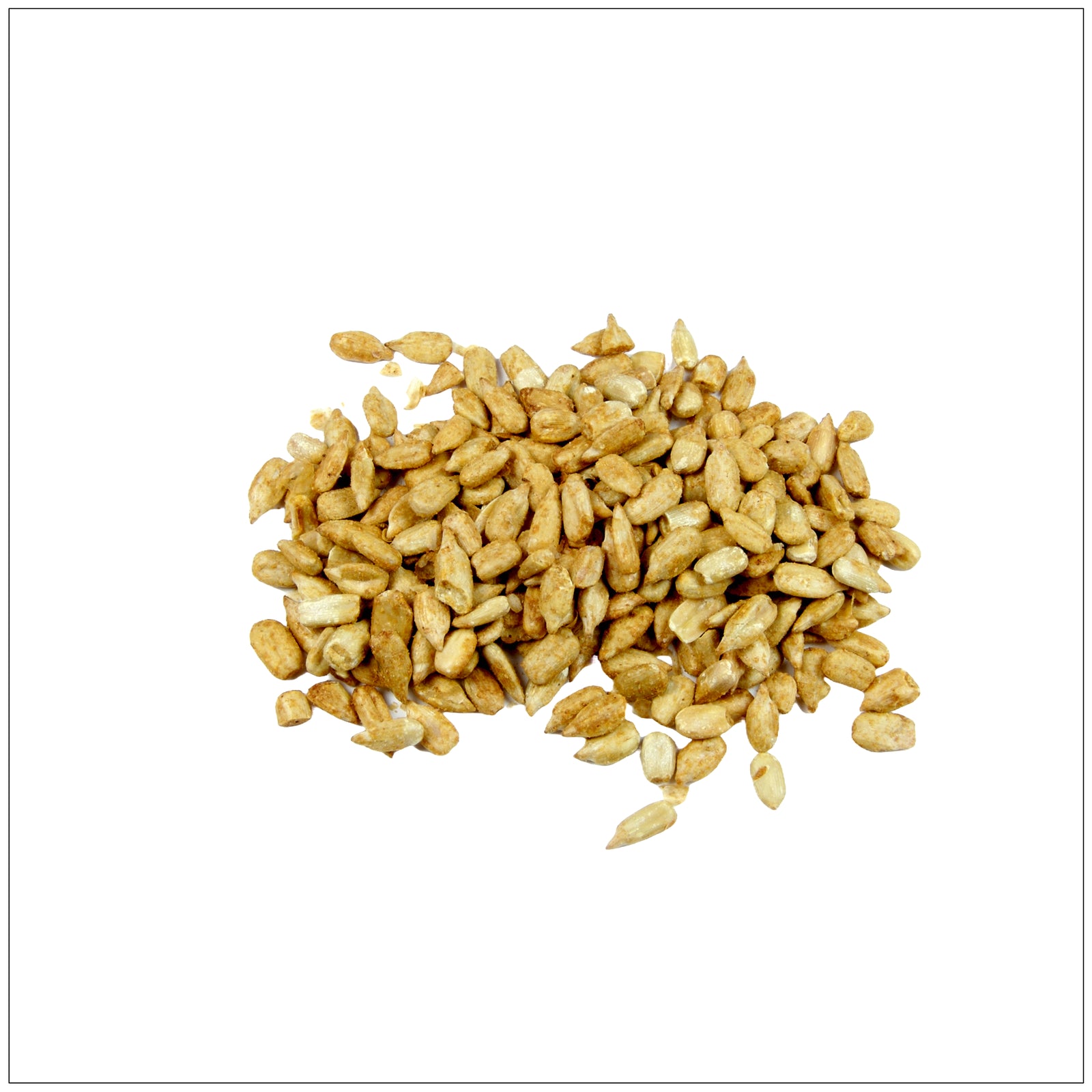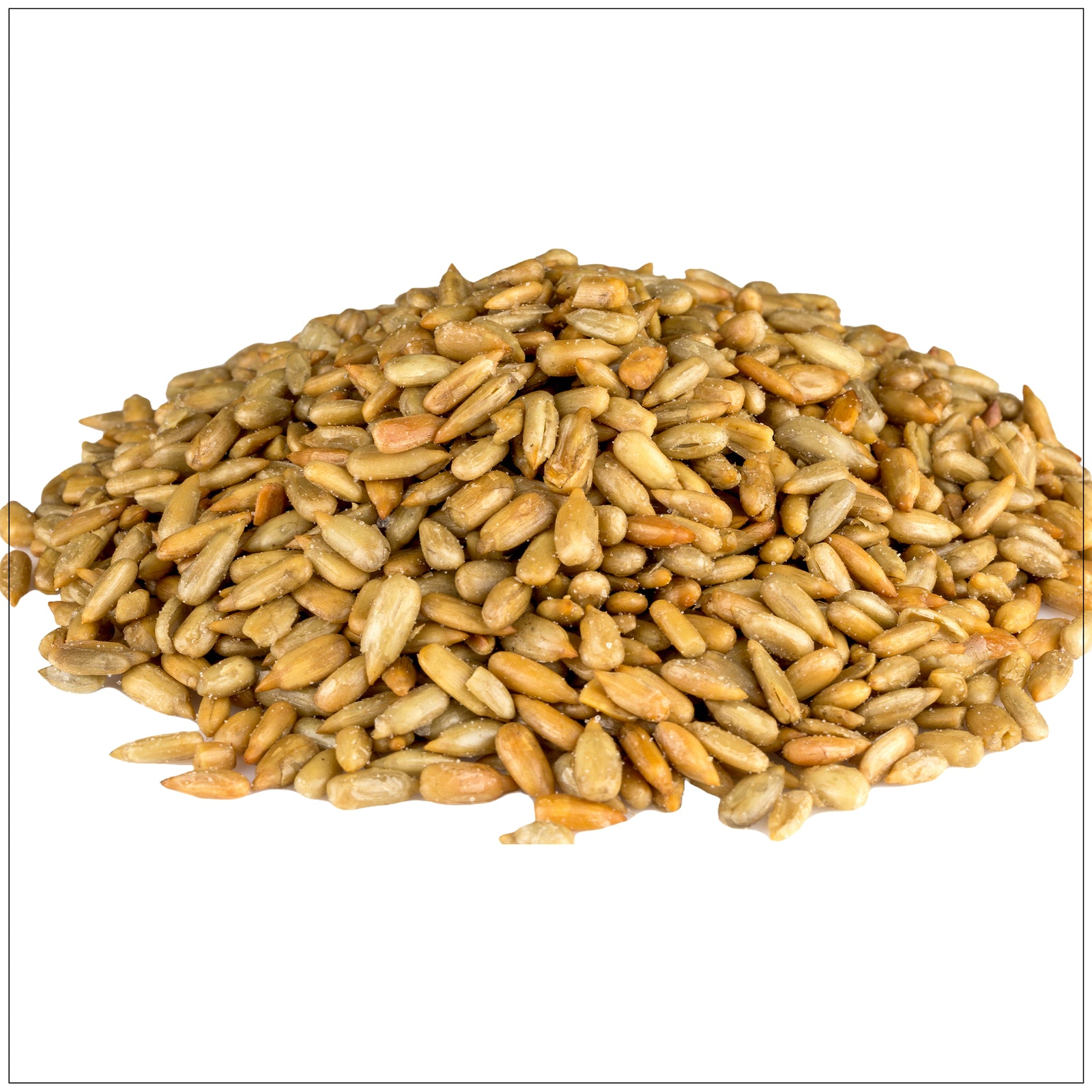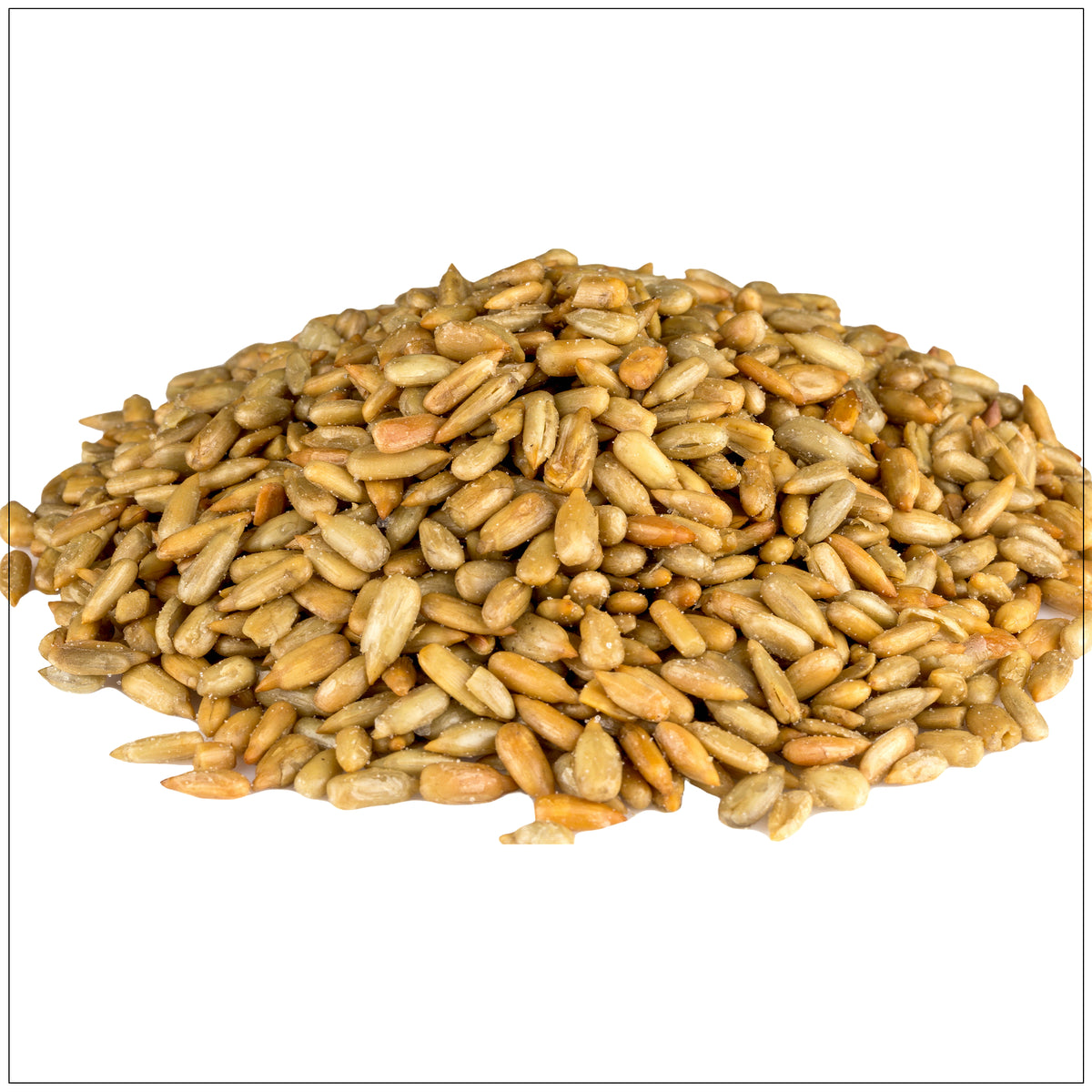

Roasted Salted Sunflower Seeds
🚚 Fast and Free Shipping !!!
What is Roasted Salted Sunflower Seed?
Sunflowers are considered to be a kind of daisy in North America (Helianthus annuus). There are two basic varieties of sunflower seed that are grown. Oilseed sunflowers are grown for the purpose of harvesting their small, dark seeds, which are then ground into meal and utilized in the production of sunflower oil. The oil is put to use in the preparation of meals as well as in cooking. The meal, which is rich in both protein and fiber, is used in the production of animal feed. The non-oilseed or confectionary kind of sunflower seed is the second type grown for commercial purposes. The sunflower seed that we utilize looks like this:. These seeds have a black and white striped hull, similar to that of sunflower seeds, although they are far larger than oilseed varieties.
The hull or shell, that surrounds sunflower seeds is made of cellulose. Before consuming the nutrient-rich kernels, the husk has to be removed first. Before being consumed, confectionary sunflower seeds are often roasted and salted while still within the shell. This technique entails inserting the seeds as they are in their whole form into the mouth, shattering them with the teeth, spitting off the shell, and then consuming the kernel. Protein, polyunsaturated fatty acids, vitamin E, thiamin, and folic acid may all be found in high concentrations in sunflower seeds. They include fiber in addition to numerous other trace minerals, such as magnesium and copper.
How to use Roasted Salted Sunflower Seed?
Unsaturated fats—especially monounsaturated and polyunsaturated fats—found in roasted sunflower seeds help to reduce bad cholesterol and support cardiovascular health.
Roasted Salted Sunflower Seed benefits:
Reduced risk of cardiovascular disease, high cholesterol levels, and high blood pressure by eating sunflower seeds. Sunflower seeds include a variety of vitamins, minerals, and antioxidants that work to strengthen the immune system and protect against disease.
◉ Immune System Stimulant:- Sunflower seeds provide immune-boosting nutrients including vitamin E, zinc, and selenium. Vitamin E is known to strengthen the immune system and protect against infectious diseases. Because of its antioxidant qualities, it protects healthy cells from damage caused by free radicals. Zinc has anti-inflammatory and anti-allergenic properties, which helps prevent infections and strengthens the immune system. Inflammation may be reduced by selenium. It lowers the oxidative stress caused by free radicals.
◉ Reduces Levels of the "Bad" LDL Cholesterol:- Sunflower seeds have a high fiber content, which may be responsible for their reduced levels of the dangerous "LDL" cholesterol. Niacin, also known as vitamin B3, may reduce the amount of cholesterol in the blood and the risk of developing heart disease. Sunflower seeds are a good source of this vitamin. Sunflower seeds are an excellent source of vitamin B5, also known as pantothenic acid, which has been shown to reduce total blood cholesterol levels while simultaneously elevating HDL levels.
◉ Advantages to One's Heart Health:- Sunflower seeds are an excellent source of oleic and linoleic acids, although they are low in salt and saturated fats. Fiber, magnesium, and potassium, as well as a reduction in cholesterol and blood pressure. In addition to that, they stop irregular heartbeats. These effects protect against coronary and circulatory disorders.
◉ Diabetes Care and Management:- Diabetics with type 2 have lower levels of sugar in their blood when they eat sunflower seeds. What about diabetes type 2? It is a persistent disease that leads to hyperglycemia by preventing cells from reacting to insulin in the appropriate manner. The symptoms include dry mouth, hunger, increased urination, unexplained weight loss, fatigue, and vision problems.
Where to buy Roasted Salted Sunflower Seed?
Buy Roasted Salted Sunflower Seeds from the health food store in the USA, Alive Herbals.
Roasted Salted Sunflower Seed information (at a glance):
| Product Name | Roasted Salted Sunflower Seeds. |
| Scientific Name | Helianthus annuus - L. |
| Country of Origin | Originally from Russia. Packaged in the USA. |
| Product Style | Whole. |
| Taste & Aroma | : Sunflower seeds taste nutty and firm yet delicate. Roasting enhances their taste, although you may purchase them raw. |
| Shelf Life & Storage | Shelf Life is about 6 - 12 months. The best way to store them is in a cool, dark place with a lid that keeps out air. |
| Precautions | We requested you, Before consuming spices, herbs, teas or any kind of natural products you consult an expert qualified healthcare practitioner or herbalist. |
| Note | This product information has not been appraised by the Food and Drug Administration (FDA). For educational purposes only. |








